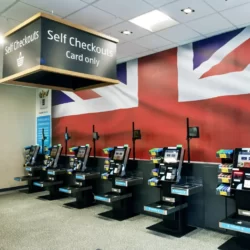New cross-Channel ferry routes to be added in case of no-deal Brexit

With little over two months to go until the official Brexit deadline, the UK government is preparing for the ‘worst-case’ scenario by awarding three new ferry contracts worth over GBP100 million. The extra freight capacity is aimed at easing congestion on both sides of the English Channel in the case of a no-deal Brexit, according to Reuters.
The reasoning is that extra ships will be needed on new routes across the Channel to help avoid a transport backlog if customs checks at the new ‘hard border’ with the EU cause delays at the main terminals of Calais (France) and Dover and Folkestone (England). The contracts for the potential new routes have been awarded to three shipping companies — Brittany Ferries, DFDS and Seaborne Freight — and will operate to/from the ports of Poole, Portsmouth and Plymouth.
This move is not without controversy, with Labour’s transport spokesman, Andy McDonald, claiming “mounting evidence of a lack of relevant expertise or experience” on the part of Seaborne Freight, and the Liberal Democrat party’s Vince Cable calling the move “complete madness”. The Department for Transport reacted by stating it was responding to a “situation of extreme urgency” brought about by “unforeseeable events”. Yet Article 50 – triggering the UK’s exit process from the European Union – was invoked almost two years ago, and the European Sea Ports Organization warned back in March 2018 that a no-deal Brexit could turn ports into bottlenecks and “disrupt long-established supply chains”.
Big disturbances in trade
In response to this latest move by the government, the European Shippers Council (ESC) warns that “the preparation made so far can never completely prevent big disturbances in trade. The capacity of warehouses in the UK has already been used completely and it is nearly impossible to rent additional space … for emergency stocks. At the same time, providers of logistics services and automation are also completely booked for the period around Brexit.” In view of this, the only solution that shippers see is “an orderly move into a transitional period, allowing governments as well as companies to finalize their preparation at least until December 2020,” urges the ESC in a press release, which is titled ‘Last chance to prevent chaos’.
Approximately 16,000 trucks pass between Dover and Calais alone each day, according to Reuters. Due to delays caused by customs checks and congestion, a no-deal Brexit scenario could jeopardize the smooth transport of things like perishable food, medicines and the industrial goods needed to keep factories running. At the end of last year, the UK government announced that all government departments must step up planning for a no-deal Brexit, including putting 3,500 armed forces personnel on standby to deal with any disruption.










